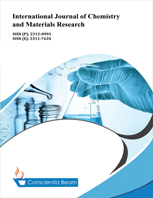Various Influence of Active Сhemical Additives on Hydrogen and Hydrocarbons Combustion
Abstract
It is experimentally revealed that the methane combustion inhibitor CCl4 shows no effect on the lower ignition limit of hydrogen combustion. It is established that small amounts (~10-1 %) of chromium hex carbonyl promote combustion of 2H2 + O2 mixture, which manifests itself in increase in the propagation velocity of the flame, thus inhibition of oxidation of isobutene by this additive takes place. Therefore the role of hydrogen atoms in hydrocarbon oxidation is not significant and may result at least in participating in longer reaction chains than in hydrogen oxidation. It means that the kinetic mechanism of inhibiting combustion of hydrocarbons by carbonyls suggested in the literature based on accounting for termination of hydrogen atoms should be refined.

